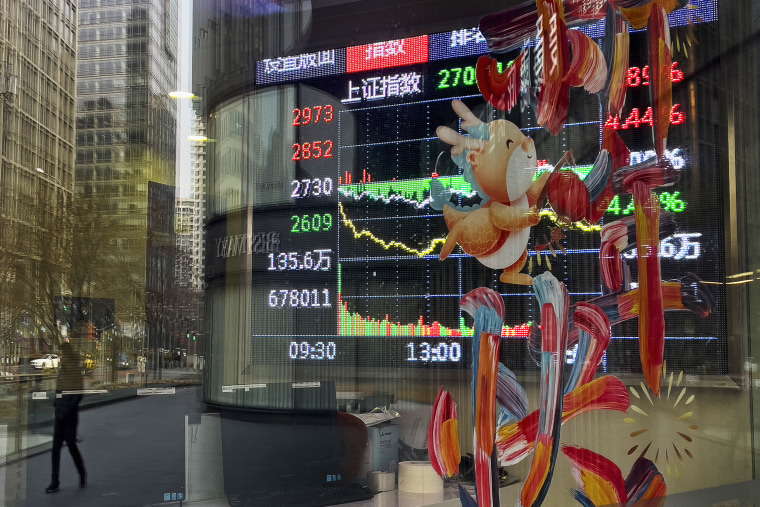HONG KONG — The post by the U.S. Embassy in Beijing was about protecting wild giraffes in Africa. But social media users in China wanted to talk about something else: the state of the Chinese economy, especially its faltering stock markets.
Tens of thousands of users on Weibo, a popular Chinese social media platform, flocked to the post on the Beijing embassy’s official account over the weekend to express their anger and frustration as Chinese stock markets hit five-year lows.
“Who can save me? I went jobless for a long time and now I am in debt,” read one comment on the Friday post, which by Tuesday had been liked more than 751,000 times and received 171,000 comments.
China, the world’s second-largest economy after the United States, grew 5.2% last year, according to official data. But it faces a number of economic challenges, including a real estate downturn, high youth unemployment and a declining population.
A difficult 2023 for Chinese stocks has extended into the new year, with domestic markets recording some of their worst weeks in years. Last week, the Shanghai Composite Index hit its lowest point since 2019, as did the CSI 300 Index, which is made up of 300 blue-chip stocks listed in Shanghai and Shenzhen. On Tuesday, Chinese stocks recorded their largest one-day gain in two years with what some analysts say appeared to be help from state-backed investors.
In late January, state media reported that China would take more “forceful” measures to stabilize the economy and promote market confidence, citing a Cabinet meeting led by Premier Li Qiang. Since the sell-off last week, the China Securities Regulatory Commission has also vowed to prevent “abnormal fluctuations” and crack down on market manipulation and “malicious short selling.”
Some users said the U.S. Embassy’s Weibo account had become a “Wailing Wall” for Chinese people’s economic concerns, referring to the site for Jewish pilgrimage and prayer in Jerusalem. In China, foreign social media accounts can offer more room for expression than those associated with economic regulators and other government agencies, whose comment sections may be more restricted or disabled entirely.
The U.S. Embassy in Beijing declined comment.
Many of the harshest comments appeared to have been removed by online censors by Monday. In December, the Chinese Ministry of State Security warned against promoting “false narratives” that denigrate the Chinese economy.
Chinese state media coverage of the economy has taken a sunnier tone, with one People’s Daily article last week headlined “The entire country is filled with optimism.”
One Weibo user mocked the headline when sharing the U.S. Embassy’s post, proclaiming “The entire giraffe community is filled with optimism.”
